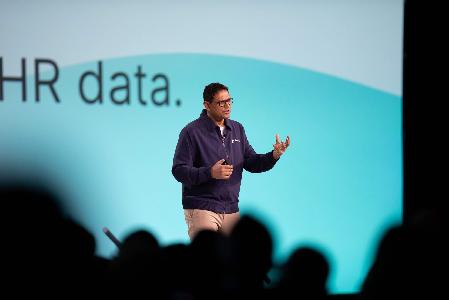The economic impacts of the COVID-19 pandemic at Johns Hopkins are being felt at the university’s center for tech transfer and entrepreneurship.
Johns Hopkins Tech Ventures laid off eight people across its divisions on Oct. 7 amid wider job cuts at the university due to revenue losses in the pandemic. After a review, JHTV is implementing a leaner structure that shifts reporting lines for staff.
“COVID-19 has required the university to carefully scrutinize and tighten all aspects of its budget,” the university said in a statement. “Following an April communication about necessary university-wide financial mitigation steps, JHTV conducted a rigorous assessment of its staffing structure in order to identify division-specific cost saving opportunities. Despite a healthy business with strong revenue projections, we identified a new structure for JHTV that will optimize our division for leaner times.”
A university spokesperson said that while there may be fewer people on the team, JHTV is striving to keep what’s offered to students and faculty consistent.
The university eliminated a total of 1.2% of its 17,000-employee workforce as a result of similar reviews that took place across its divisions. At JHTV, the cuts were closer to 10% of the workforce, proportion-wise, as the division had nearly 80 employees, per its website.
JHTV has grown the university into one of the city’s most active tech and entrepreneurship hubs in recent years, as Johns Hopkins put a new commitment toward commercializing research that comes out of its high-profile research labs and encouraged entrepreneurship among its community.
After Daniels appointed Christy Wyskiel as senior adviser for innovation and entrepreneurship in 2013 and JHTV was created the next year, Hopkins put forth a multi-phase plan that includes space with FastForward innovation hubs in Remington and East Baltimore, funding, programming through its startup accelerator programs for students and the community, and expanded corporate partnerships. It has resulted in numerous startups founded by former students, faculty and alumni that raise funding, hire in the city and exit. JHTV is also responsible for patents and licensing technology from the university for commercial use.
According to its annual report, JHTV activated 114 licenses and options in the 2019-2020 fiscal year, and saw $27.3 million in licensing revenue over the same time. Startups with technology licensed from the university raised $278 million in the same timeframe.
Hopkins has a major local role as the Baltimore area’s top employer and one of the highest-profile institutions of a regional economy where healthcare and education are playing an increasingly prominent role.
Yet like many higher education institutions, the university is facing financial pressures as a result of a pandemic that has kept classes remote and led to restrictions on healthcare. In April, Daniels wrote that the university was facing a deficit due to a loss of revenue from elective surgeries at Johns Hopkins Hospital, as well as refunds from room and board from students and costs of continuing to operate safely during the pandemic.
In general, the university operates on slim margins with a typical surplus of 2%, Hopkins president Ron Daniels wrote in a recent letter to the university. As part of a second phase of austerity measures that concluded this month, the university eliminated a total of 204 positions, and closed 229 vacant positions.
Daniels wrote that the process was one of “division-by-division strategic planning and budget control efforts to align expenses with anticipated revenues over the years ahead while continuing to make strategic investments in critical priorities.”
“Regrettably, this process included the difficult but necessary reductions in force and furloughs experienced by some of our divisions and within university administration,” Daniels wrote. The letter also said that those suffering job losses “received enhanced severance arrangements to reflect the challenges of this moment, including cash payments, extended health benefits and job placement services.”
With the measures put in place, Hopkins now is projecting a budget loss for this fiscal year of $73 million, down from an initial projection of $375 million in April.
If you’re wondering why the institution doesn’t use its endowment’s billions to make up these losses, check out its coronavirus FAQ page: Essentially, it’s unethical to use the endowment as a “rainy-day” fund, the university said.
Join the conversation!
Find news, events, jobs and people who share your interests on Technical.ly's open community Slack

This Black gaming advocate has a mission to transform education through esports

Is AI really something new — or just the next big technology platform?

This Week in Jobs: Get out there with 22 new job opportunities available to you!


